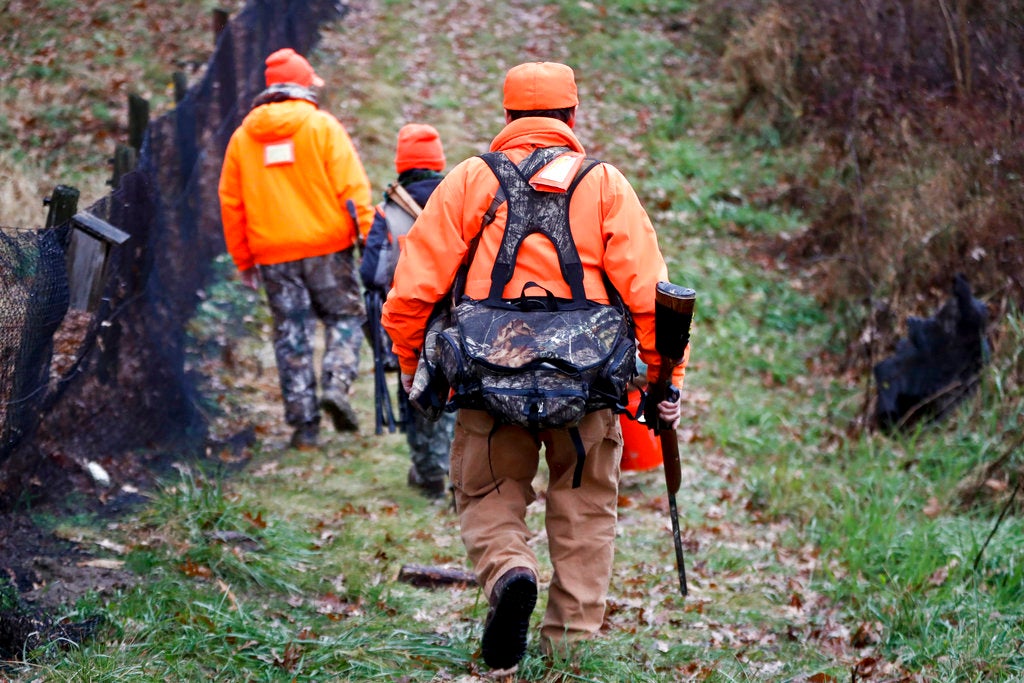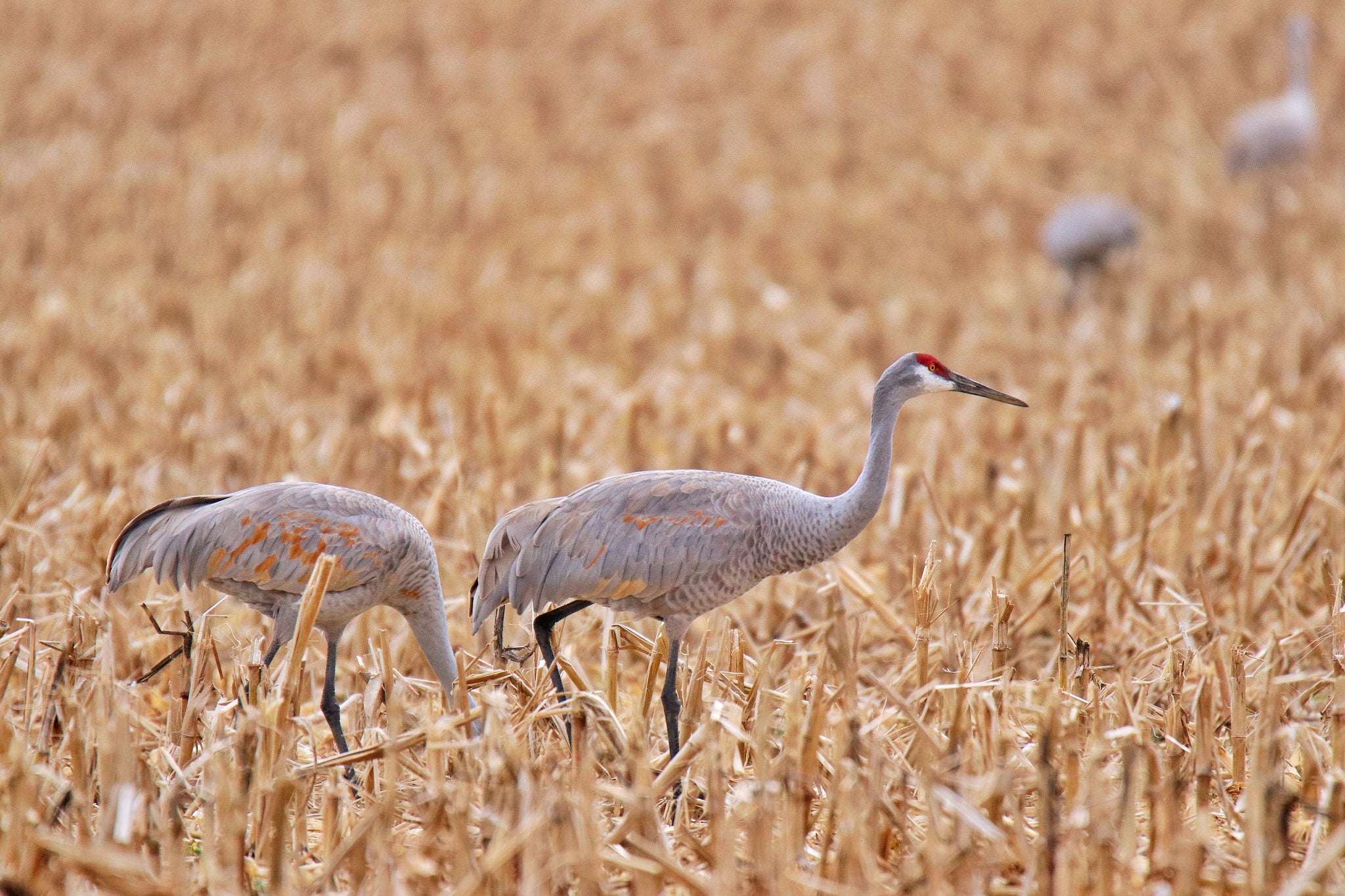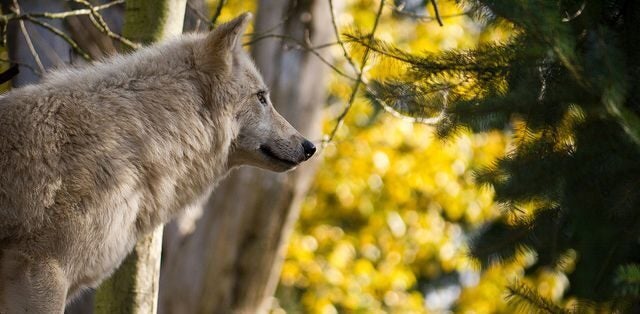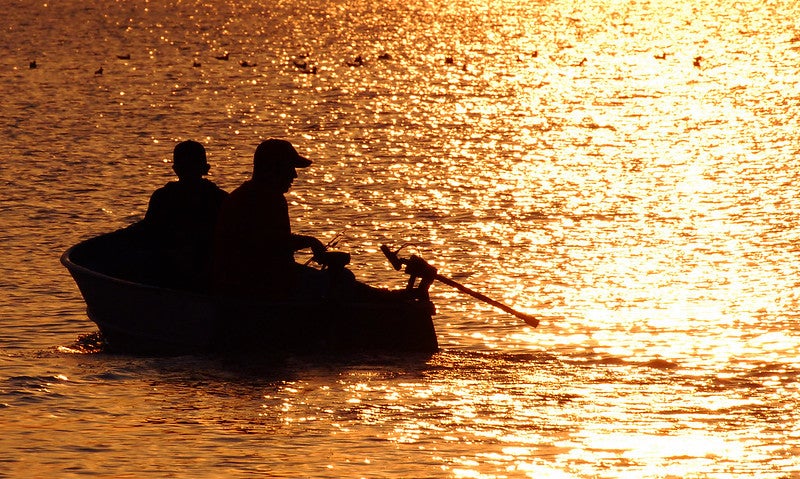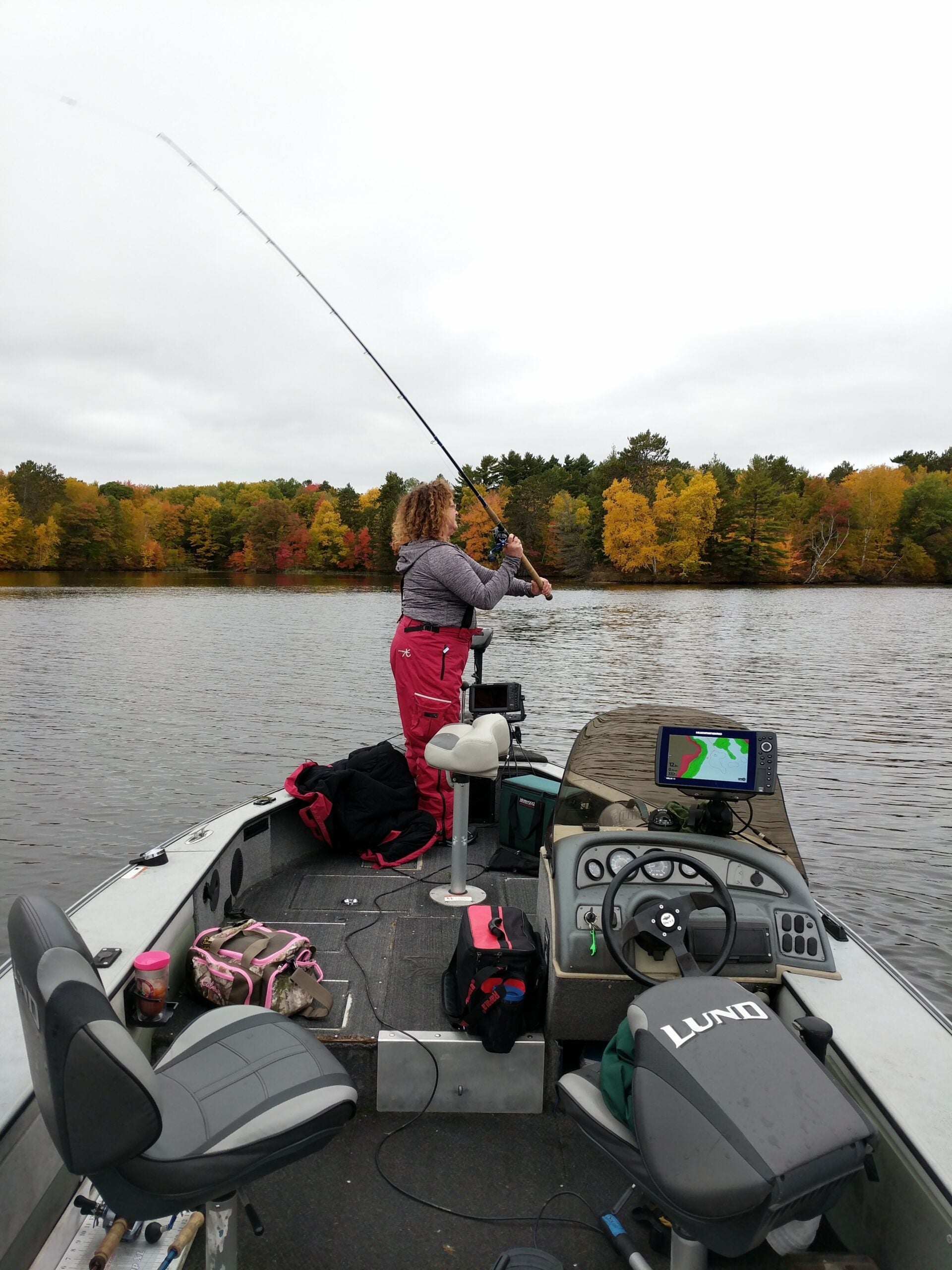The Wisconsin Department of Natural Resources says the state’s fish and wildlife account is approaching a $16 million deficit by 2026, which funds 20 percent of its workforce or roughly 500 positions.
The DNR’s budget staff outlined the pending shortfall to the Natural Resources Board on Wednesday. Paul Neumann, the DNR’s Management and Budget Section chief, said hunting, fishing, trapping and other license fees make up the most significant source of revenue for the account.
Over the years, Neumann said more people are aging out of those activities than younger people who are buying licenses. Prior to last summer, he said the budget hadn’t included a significant increase in license fees since 2005.
“The account is not generating enough revenue to support our authorized spending levels,” Neumann said.
License sales are lagging
In 2018, the Wisconsin Policy Forum found deer license sales dropped 5.8 percent from 1999 to 2017. Fishing licenses grew 3.6 percent during that same timeframe. However, the nonpartisan research group said the state’s population grew faster than fishing license purchases, indicating that anglers now make up a smaller share of the state population.
The group also released a report last year that found revenues from fish and wildlife fell from roughly $79.5 million in 2021 to $70.7 million in 2022.
The DNR is authorized to spend around $74.6 million under the account in fiscal year 2024. It’s the agency’s primary funding source for fish and wildlife management, as well as the agency’s law enforcement programs.
“On the law enforcement side, that’s wardens out in the field doing fishing (and) game enforcement work. That’s patrol miles,” Neumann said. “For the wildlife and fisheries folks, those are your biologists and technicians, working in the field on habitat improvement projects, stocking (and) collecting data that helps manage a fishery or a game species.”
The 2023-25 state budget provided a one-time transfer of $25 million from the agency’s forestry account that is being split equally over the two years to make up for the shortfall in revenues. The Republican-controlled budget-writing committee also drafted a $2.2 million increase in non-resident fees that was approved by Democratic Gov. Tony Evers.
Even so, Neumann said there’s been a 59 percent increase in inflation since 2005 as fees have remained flat. By 2026, the DNR expects to draw in around $62.3 million in revenue, but it must meet $78.2 million in spending obligations.
Stay informed on the latest news
Sign up for WPR’s email newsletter.
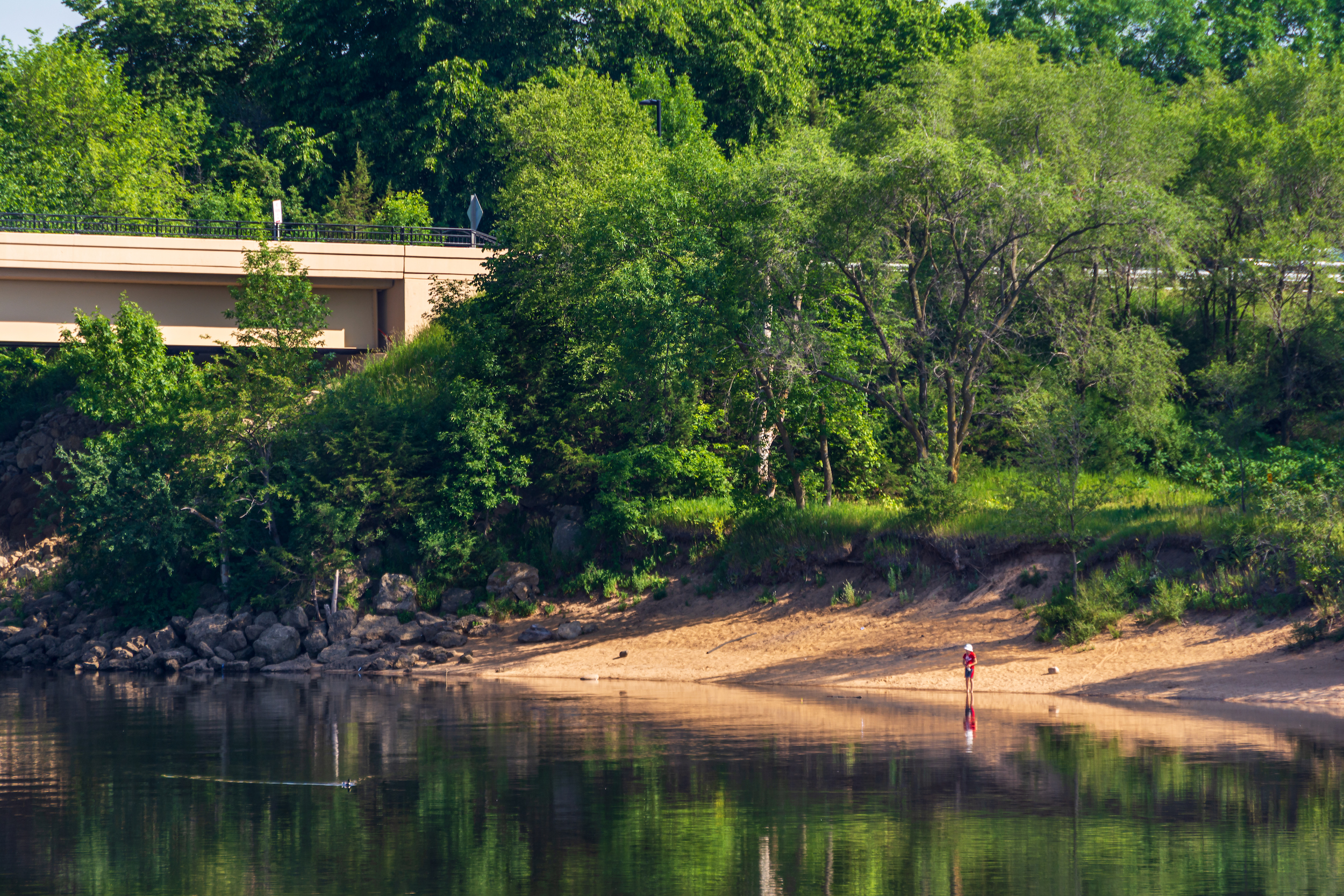
Discounted fees reduce revenues, tribal officials express concern
Tim Gary, the agency’s budget and policy analyst, said he estimated that discounts for people living with disabilities, veterans, seniors, youth and others are reducing the account’s revenue by about $17 million per year.
Related to spending, Neumann said the agency is paying staff more as part of increased compensation under the current two-year budget. He said overtime costs for wardens and limited-term positions are increasing financial pressure, but the budget did cut 5.5 positions funded through the account.
Tribal officials have also voiced concern about the deficit in the fish and wildlife account. Jason Schlender, executive administrator of the Great Lakes Indian Fish and Wildlife Commission, said the shortfall could jeopardize joint management of fish populations like walleye. He said the DNR has not been able to conduct creel surveys on 16 to 25 lakes in ceded territory as outlined in the state’s walleye management plan.
“Walleye populations are declining regionally, necessitating increased — not decreased — population and harvesting monitoring in the coming decades,” Schlender told the board. “Walleye will need enhanced protection from stressors such as overharvest, development, land use practices, pollution, eutrophication, habitat destruction and climate change.”
Neumann said staffing levels at the agency in general are down about 11 to 12 percent in authorized positions over the last two decades.
DNR suggests cost-saving measures
The DNR could seek cost-saving measures by examining positions, equipment replacement or other methods to reduce the deficit, said Neumann.
“Bottom line is just trying to be as efficient as possible with the resources that we have,” he said.
Neumann added the agency could lean more on alternative sources like federal Pittman-Robertson funding. Over the years, the account has benefitted from increases in those funds, which stem from federal excise taxes on firearm and ammunition sales.
However, DNR Deputy Secretary Steven Little said that is not a long-term solution for adding staff or financing significant projects. He said the agency is only proposing to address the looming deficit.
“It’s not necessarily going to be the panacea to solve the comments that we hear from stakeholders about not having enough or the perception that there’s not enough being done to preserve habitat or to manage species,” Little said. “This is just to get us back above water.”
Natural Resources Board member Paul Buhr said people should pay a fair price for license fees.
“I know that we don’t set those prices, but I think that the Legislature should be informed,” Buhr said. “If they’re really concerned about conservation and being conservative, that would be the direction we go.”
Wisconsin Public Radio, © Copyright 2025, Board of Regents of the University of Wisconsin System and Wisconsin Educational Communications Board.
